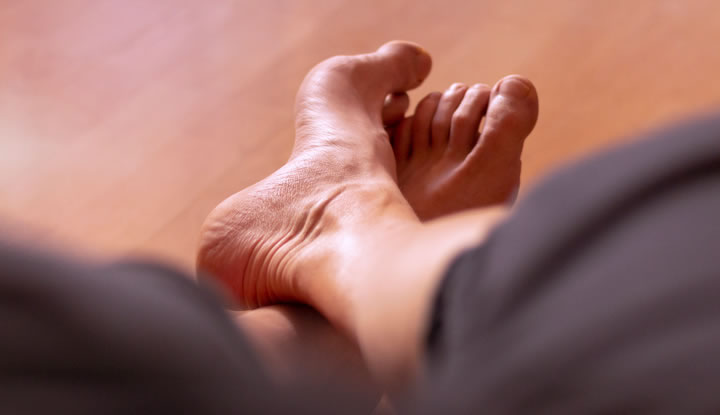Menu
Have you ever felt like your feet are not quite supporting you the way they should? Whether it's a dull ache after a day on your feet or a sharp pain with every step, arch problems can majorly impact your daily life. At Mid Penn Foot & Ankle Specialists, we understand how critical healthy feet are to your overall well-being. Keep reading to learn about fallen and high arches and their connection to your foot health.
Fallen arches, also known as flat feet, occur when the arch of the foot collapses, and the sole comes into complete or near-complete contact with the ground. This can cause extreme discomfort and eventually lead to further complications. Common symptoms include pain in the heel or arch area, swollen ankles, and difficulty in foot movement. Causes range from genetic factors and aging to obesity and injury. It's important to recognize these signs early to prevent further issues.
Your foot's arch acts as a natural shock absorber, aiding in weight distribution and providing balance and stability. Both fallen and high arches can disrupt this balance, leading to strain on other parts of the foot and even affecting your posture and gait. Over time, it can create discomfort and pain in your feet as well as in your knees, hips, and back.

One effective way to manage arch problems is through custom orthotics from a local podiatrist. These personalized shoe inserts are designed to support your unique foot structure, providing relief from discomfort and preventing further complications. Evenly distributing pressure and realigning your feet can help restore functionality and comfort, making each step easier to take.
Ignoring arch problems can lead to several serious issues, so it's important to see a qualified foot doctor if you notice symptoms. Fallen arches, for instance, can result in plantar fasciitis, tendonitis, and even arthritis in severe cases. High arches, on the other hand, can lead to frequent ankle sprains, calluses, and metatarsalgia. These complications can severely impact your mobility and quality of life, which is why early intervention is so essential.
Treatment options for arch disorders vary depending on the severity and individual needs. Non-surgical treatments include physical therapy, stretching exercises, and the use of orthotics. These foot care approaches focus on strengthening foot muscles, improving flexibility, and providing support. In more severe cases, surgery might be necessary to correct the structural problems of the foot. Procedures range from minimally invasive techniques to reconstructive surgery aimed at restoring the natural arch and alleviating pain.
If you've been looking for a reliable foot doctor, call the team at Mid Penn Foot & Ankle Specialists. We are here to provide you with personalized care and advanced treatment options. With our dedication to foot care, we can tackle these issues together, helping you regain comfort and confidence in your steps. Don't let foot pain hold you back; contact our specialists for more information or to schedule an appointment for professional foot treatment.